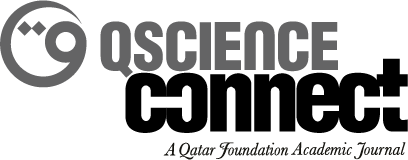-
oa Theoretical assessment of sound absorption coefficient for anisotropic nonwovens
- Source: QScience Connect, Volume 2013, Issue 1, يونيو ٢٠١٣, 3
-
- ٠٩ أكتوبر ٢٠١٢
- ١٢ يناير ٢٠١٣
- ٠١ يوليو ٢٠١٣
ملخص
The anisotropy factor as a function of fiber arrangement, fiber fineness and sample thickness has been derived from the theories of soundwave transformation due to phase changing. The sound absorption coefficient of the anisotropic fibrous material is then theoretically calculated. The fibrous materials were prepared so that the fibers are arranged parallel (perpendicularly laid fiber web called STRUTO technology) in the direction of soundwave propagation or perpendicularly (longitudinally laid fiber web) to the direction of sound propagation. The sound absorption coefficient was measured due to the Impedance tube. The theoretical results are in good agreement with experimental findings.


